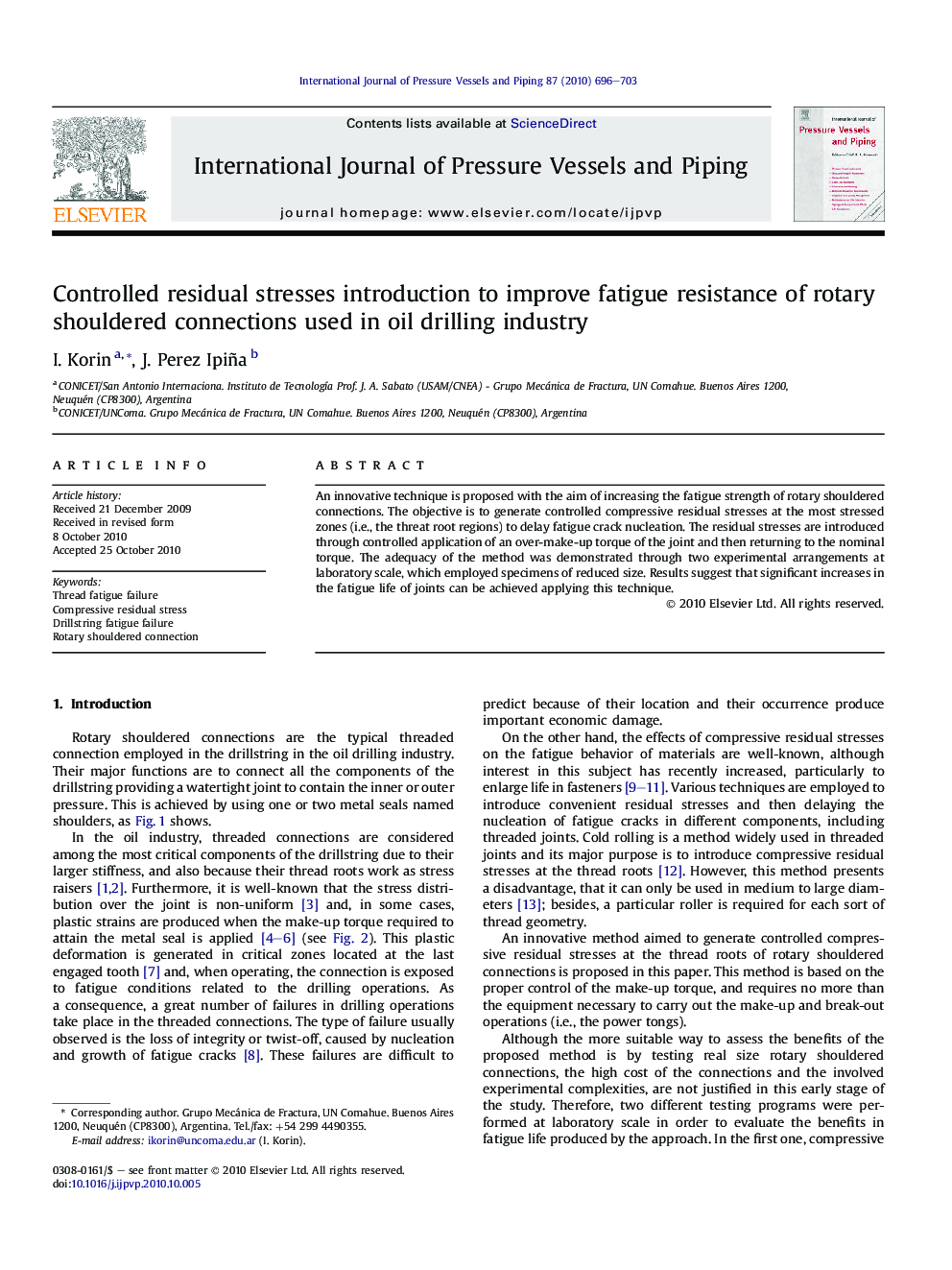| Article ID | Journal | Published Year | Pages | File Type |
|---|---|---|---|---|
| 785475 | International Journal of Pressure Vessels and Piping | 2010 | 8 Pages |
Abstract
An innovative technique is proposed with the aim of increasing the fatigue strength of rotary shouldered connections. The objective is to generate controlled compressive residual stresses at the most stressed zones (i.e., the threat root regions) to delay fatigue crack nucleation. The residual stresses are introduced through controlled application of an over-make-up torque of the joint and then returning to the nominal torque. The adequacy of the method was demonstrated through two experimental arrangements at laboratory scale, which employed specimens of reduced size. Results suggest that significant increases in the fatigue life of joints can be achieved applying this technique.
Keywords
Related Topics
Physical Sciences and Engineering
Engineering
Mechanical Engineering
Authors
I. Korin, J. Perez Ipiña,
